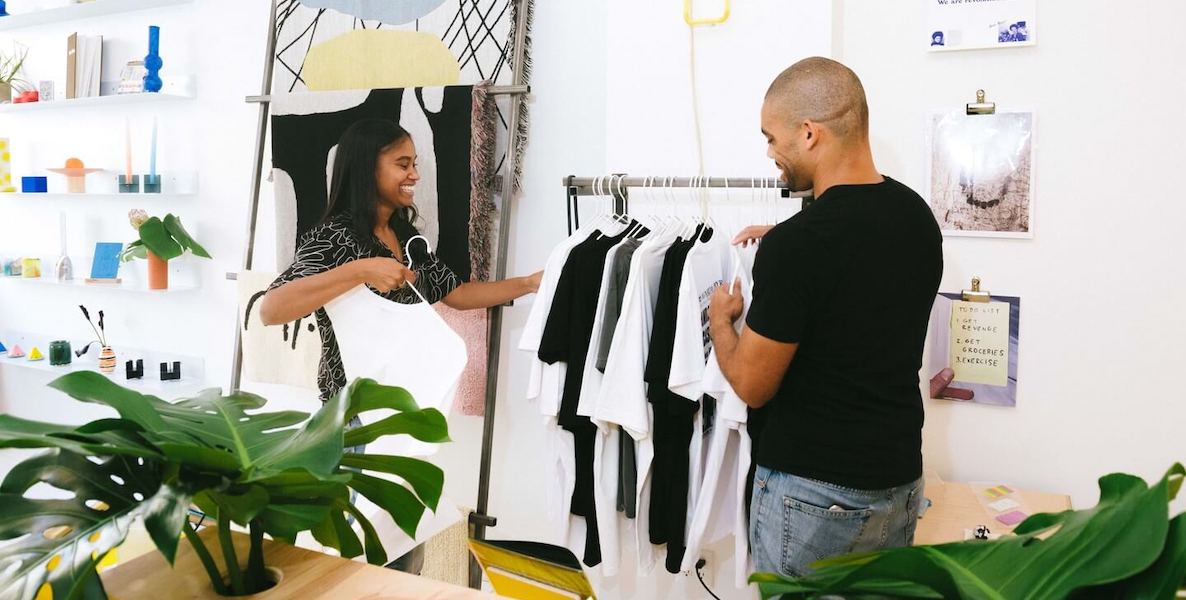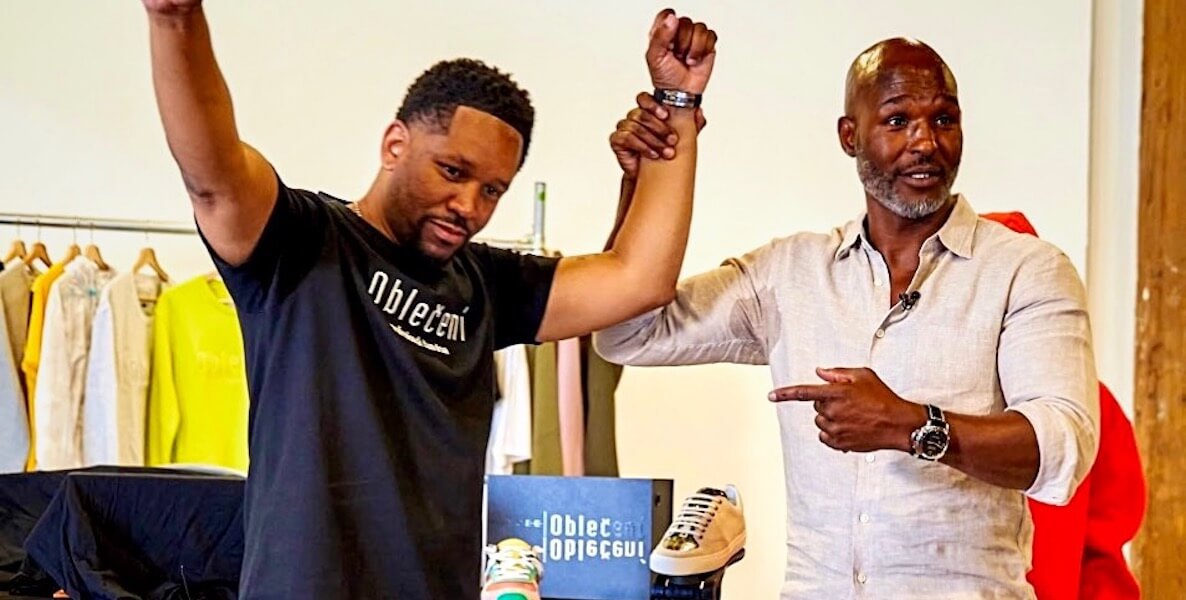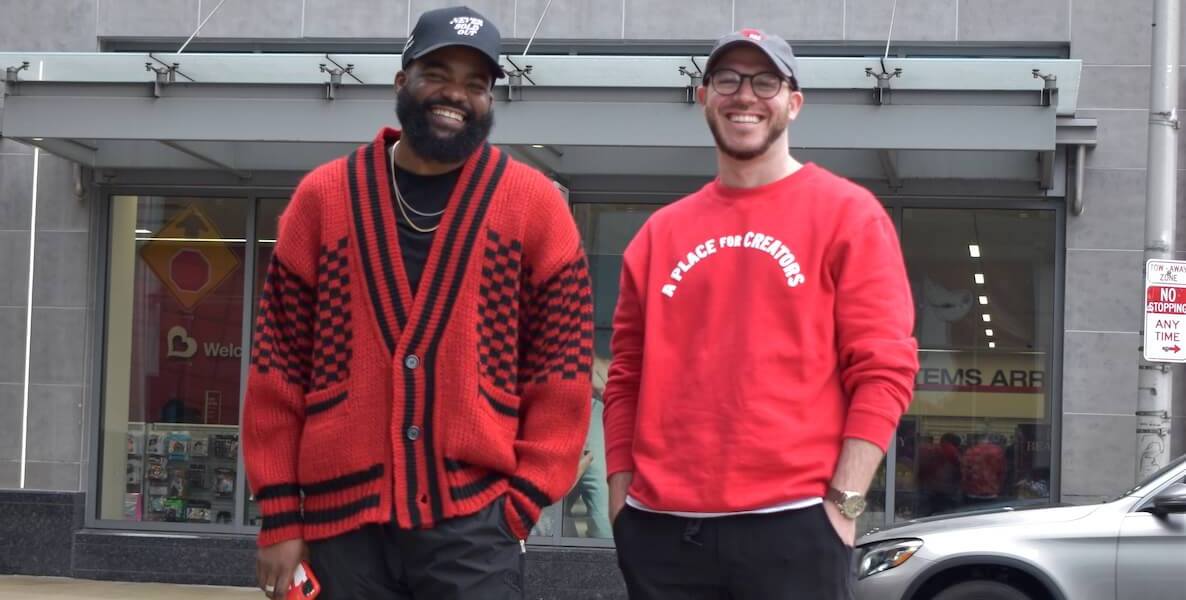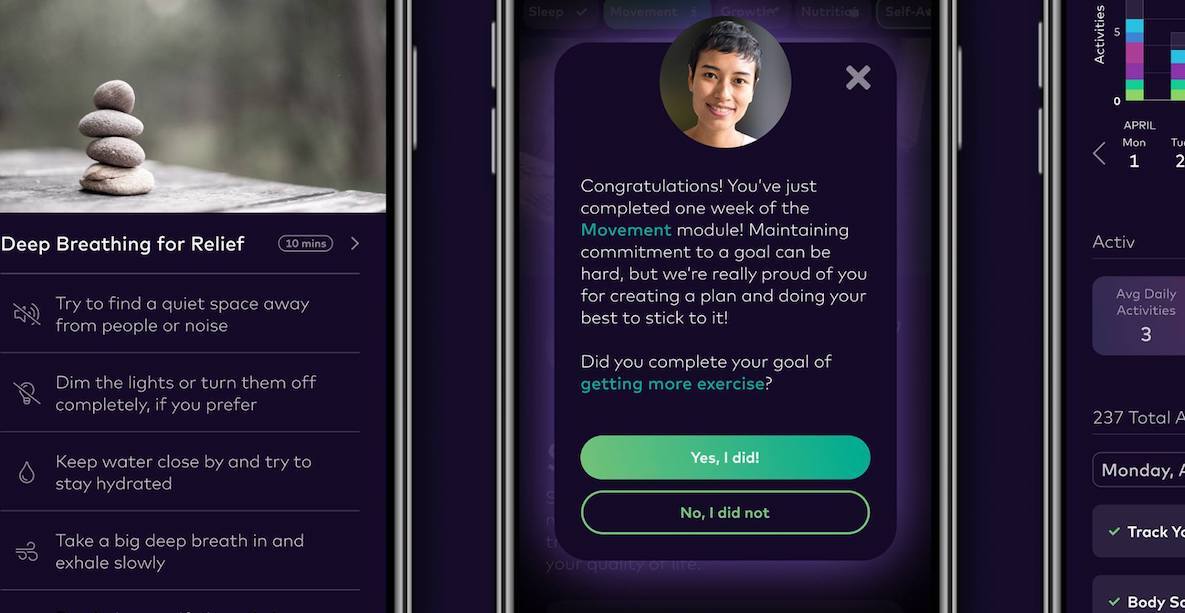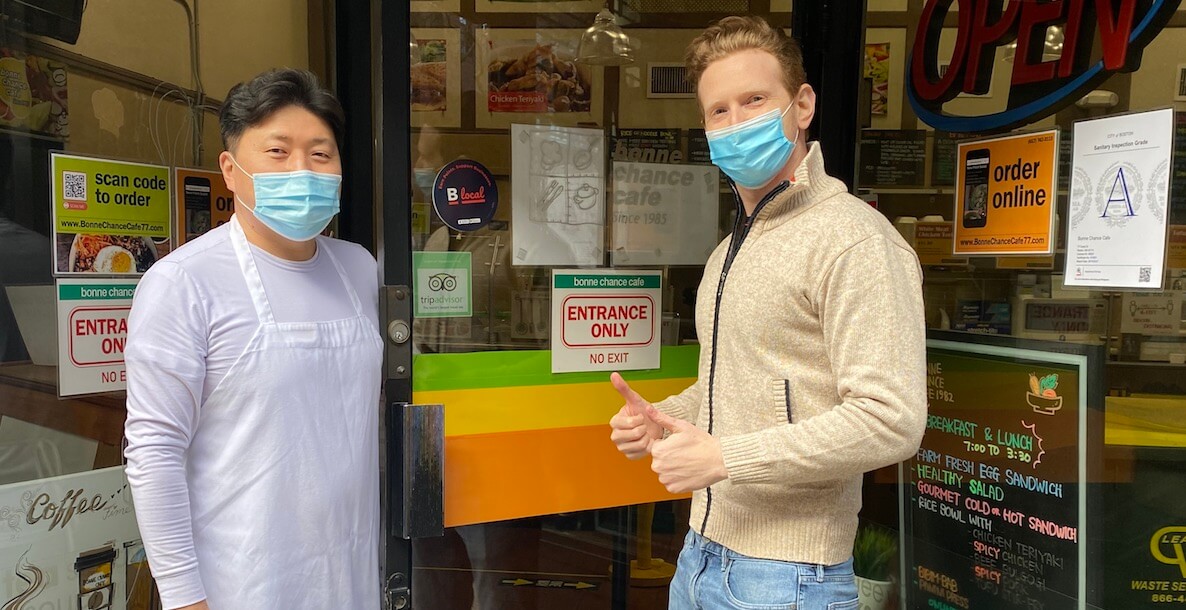Growing up in Akron, OH, James J. Hardy remembers looking up into the sky and seeing his city’s signature contribution to pop culture: the ever-present Goodyear Blimp.
“We grew up seeing the Blimp every single day during warm-weather months,” recalls Hardy, who’s now deputy mayor of his hometown, where Goodyear maintains its headquarters.
So it’s fitting that, as part of a one-year-old program to reward people for shopping at local businesses, customers amass virtual “Blimps”—points, essentially, that are redeemable at participating local businesses.
It’s all part of Akronite, an app the city rolled out last August in response to the hit small businesses were taking during the pandemic.
“Creating a city-sponsored app to incentivize local business was not on our radar at the beginning of 2020,” Hardy says. “This was completely driven by the hard pivot that we have all had to make, and are still making, as it relates to the pandemic.”
MORE ON SMALL BUSINESSES IN PHILLY
- Hand in Hand is an eco-friendly, socially-minded soap biz
- Bungee Oblečení was dreamed up while its founder was incarcerated
- Home Appétit delivers delicious food to your door while doing good
- Spak Group takes community to heart as it makes inroads in neighborhoods
Small businesses in Akron, like Philly, were disproportionately affected, as foot traffic vanished and people turned to online retailers to meet their needs. As Bruce Katz reported for The Citizen last fall, “The Covid-19 crisis [wreaked] havoc on Main Street small businesses across the United States. Since February 2020, almost 25 percent of all U.S. small businesses have closed at least temporarily. In the hardest hit sectors, like restaurants, hotels and retail, the numbers are far higher.” That impact, Katz went on to say, was even more catastrophic for businesses owned by Black and Latinx entrepreneurs.
But for every pandemic problem the city of Akron couldn’t control, the policy challenge the city realized it could address, Hardy says, was: How do we incentivize customers in the region to come back and shop at some of these small businesses?
“In every community, there’s a group of folks who believe strongly in shopping locally. But all of us fall down on that from time to time, and certainly during the pandemic I think every one of us really struggled with how to do that,” Hardy says.
Then his team heard about Colu, an app development company with headquarters in Israel and offices in the U.S.; Colu had put out an online product that helped to dramatically revitalize a commercial corridor in Jerusalem.
Hardy and his team were impressed.
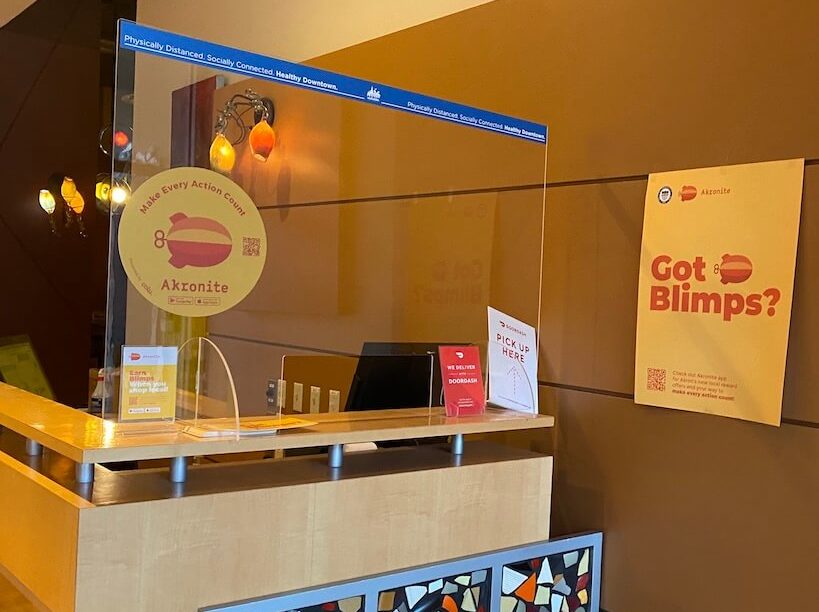
And so the City of Akron partnered with Colu to create “Akronite,” which works like this: Shoppers sign up for the free Akronite app, and link a designated credit card or cards to it. Any time users shop at a participating business—so far, there are 198 and counting in Akron—they amass Blimps.
Let’s say you spend $20 at a restaurant that offers a 15-percent Blimp perk; you’d then have $3 added to your Akronite account. If, the next day, you go into a coffee shop that participates in the program, you can redeem that $3 there. The best part: All redemption money is paid for by the city of Akron—the Blimps program is part of the city’s official budget!
“In every community, there’s a group of folks who believe strongly in shopping locally. But all of us fall down on that from time to time, and certainly during the pandemic I think every one of us really struggled with how to do that,” Hardy says.
The app also features heartwarming stories about participating businesses, as a way to go beyond the transactional nature of the app and fuel a sense of community.
When the app launched in Akron last August, Hardy says the goal was to attract 1,000 users, total; it had that many in the first week, and now has 5,541. And as the program approaches its one-year anniversary, Hardy says it’s undoubtedly offered an excellent return on investment. “So far, we’ve seen up to a 20-times multiplier, meaning that each dollar that the city invests in the program is able to generate up to 20 times that amount in the form of local economic activity,” says Colu’s Vice President of Business Development Michael Mazur. “It’s not like a billboard, where you have no clue, ultimately, where that advertising money goes.”
Akron was the first city in the U.S. to launch a program with Colu, which is now also working with Boston on an analogous program called “B-Local,” as well as Youngstown, OH, and cities and counties throughout California, like San Mateo County, which includes Silicon Valley. Other app companies are of course also out there working on similar programs.
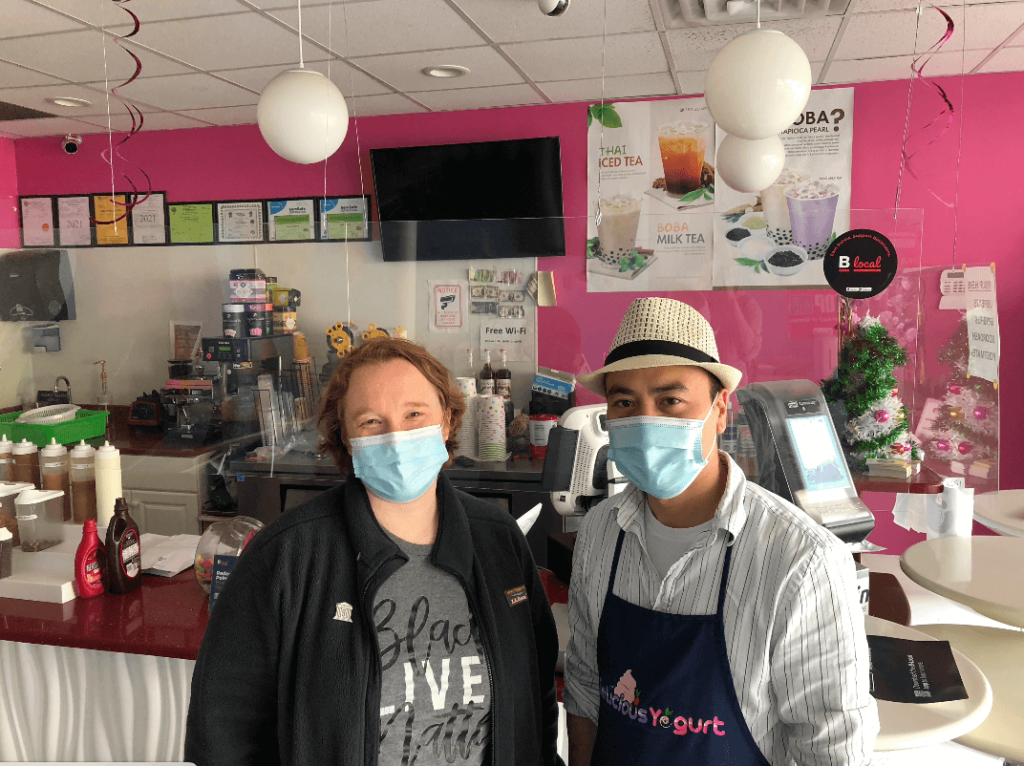
Harding says that, since the program launched, it’s been a win-win all around: “It has kind of fed on itself,” he says. The city pays Colu $100,000 a year to run the app, and has budgeted $50,000 towards Blimp redemption costs. Mazur says that many cities are using their CARES and ARPA dollars to cover the cost.
“$150,000 a year is really not a huge chunk of money out of our budget for something that clearly has become such a cool, popular program for both businesses and consumers,” Hardy says.
And he believes the program has utility beyond retail. “The use cases are almost endless. The city could use the Blimp system to reward users for other good civic behaviors. Maybe it’s recycling correctly. Maybe it’s voting,” he says. Right now, they’re considering rewarding users who place a 3-1-1 request to report something that’s broken in the city.
Anna Shipp, executive director at Sustainable Business Network in Philly, said by email that her group is of course in favor of actions that support local independent businesses, especially those owned by people of color and other historically marginalized groups.
“Akron’s new program nods to ‘Local First’ campaigns across the country, which have a track record of success,” she said. “However, without a favorable policy landscape, the ability of diverse small businesses to start, grow, and thrive will remain girdled.”
“People underestimate the industrial heartland, but there’s so much innovation that’s going on,” Hardy says. “And we have really good civic leadership here—starting with our mayor—that has pushed us all to be better.”
Akron—and Colu—recognize this. Mazur says that equity is woven into all of Colu’s rollouts. “Making sure business owners who, say, may not speak English or may not be as tech-savvy, which ultimately a lot of business owners aren’t, aren’t left out is critical,” he says.
And on top of offering additional Blimp rewards to shoppers who support Black- and female-owned businesses, Akron is also rolling out a forthcoming initiative to create or scale 200 Black-owned businesses in the next 10 years, with a “medical rounds” model to mentor and support Black entrepreneurs. “We really want to create a dynamic talent development and mentorship ecosystem,” Hardy says.
Mazur and Hardy agree that for a program like this to thrive in any city, it’s critical to make it free to business owners and residents, and it’s essential to have the support of local neighborhood groups, like CDCs. “Community Development Corporations have been hugely helpful to us in terms of getting businesses on board and getting the word out to the neighborhood that, ‘Hey, you can get cash back just by going to the same place that you’ve been going,’” says Hardy. “Those neighborhood-level organizations have really been amazing. Certainly the Chambers [of Commerce] don’t hurt. But it’s the neighborhood-based organizations that have really come through.”
It all sounds refreshingly progressive, especially coming from a part of the country that’s often written off as being the opposite.
“People underestimate the industrial heartland, but there’s so much innovation that’s going on,” Hardy says. “And we have really good civic leadership here—starting with our mayor—that has pushed us all to be better.” That mayor is Daniel Horrigan, who, says Hardy, “From his first day in office in January 2016 pushed City staff to be more innovative, and less afraid of technology and data. I’m not sure every Mayor would have said yes to the idea that we would incentivize local consumer spending through a smart phone app during a pandemic, but he didn’t think twice about approving the project.”
Hear that, Mayor Kenney?
Boston's B-Local campaign encourages residents to support their local businesses | Photo courtesy of Colu

